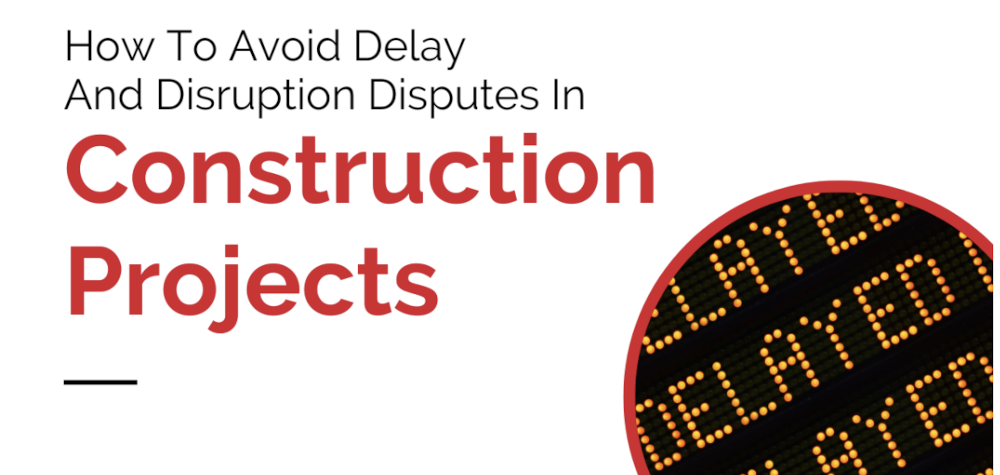Throughout this article, I will be explaining how to avoid delay and disruption disputes in a construction project.
Projects delivered on time, within budget and to high standards are an Employer’s dream. Indeed every Contractor readily promises these virtues at the early stage. Yet, construction projects have a tendency to generate disputes that destroy otherwise lucrative commercial relationships between Employers, their Contractors and Professional Consultants as well as between Contractors and their Specialist/Trade Sub-Contractors. The Technology and Construction Court exists for the specific purpose of resolving these disputes.
What causes these disputes and how can they be avoided?
Of the three pillars of time, cost and quality on which every successful project is built, time is the most challenging to control and is the culprit of many disputes. A vital tool in the management of projects is a well-resourced, time-sequenced and logic-linked contract programme which defines the critical path of the construction activities, identifies key milestones and locks in the completion date.
But, as sure as night follows day, every contract programme is guaranteed to be disrupted between commencement and completion.
The standard forms of contracts and other bespoke forms readily recognise events under the control of the Employer, Employers Risk Events for which the Contractor is entitled to an extension of time (“EOT”) together with compensation for prolongation. There are also non-compensable Employer Risk Events, for which the Contractor may be entitled to an EOT. But, without compensation for prolongation, there are Contractor Risk Events for which the Employer is entitled to recover liquidated and ascertained damages (“LAD”) from the Contractor for the resulting delayed completion of the contract.
Save for timely payment, the Employer in construction contracts is uniquely silent. The Contracts Administrator (“CA”), who could be the Architect, Engineer or Project Manager does almost everything else in the Employer’s stead. Thus, the burden of preventing the disruption and consequent delays to the contract programme degenerating into a dispute falls on the CA. They must determine whether the Contractor is entitled to EOT with or without prolongation compensation or whether the Contractor is liable to pay LAD when the completion date is exceeded.
In fulfilling this obligation the CA must not consider themselves partisan as the Employer’s hired hand and therefore solely protect the Employer’s interests. They should always be even-handed and discharge this function fairly, objectively and expeditiously. They should of their own initiative notify the Contractor of any Employer Risk Event of which they are aware and invite the Contractor’s earliest response. The Contractor must similarly act accordingly and positively assist the CA by notifying them of every delaying event at the earliest possible opportunity, together with an objective assessment of the impact on the critical path and the completion date. Although seemingly counterintuitive, it is almost always to the Contractors’ advantage/credit when, notwithstanding an Employer Risk Event for which they could claim EOT with prolongation compensation, they nevertheless should produce a revised construction programme which protects the completion date wherever possible.
The CA and the Contractor should always be prepared to proactively deal with every incident of disruption contemporaneously as it happens, rather than leave the same to fester in the hope that the completion date is still achievable or that EOT issues are best addressed at the end. When this approach is adopted, a dispute requiring the attention of expert contentious lawyers whether in adjudication, arbitration or litigation often becomes inevitable.
At Mercantile Barristers, we are specialist consultants in the law for when the legal issues involved are complex, intricate and so important that the most seasoned expertise in advice and handling is required. Our members have a wealth of experience in the technology, construction and engineering industries; our key members hold industry professional qualifications and have practised for several years with leading construction and engineering consultancies.
Whether by adjudication, arbitration, or litigation, members at Mercantile Barristers will adopt a firm, swift and decisive approach to achieve the best possible results for clients within the shortest possible time.
Remember, if you are faced with a construction dispute, Mercantile Barristers will be happy to assist. Do use the enquiry form below to contact us to discuss your matter further.





